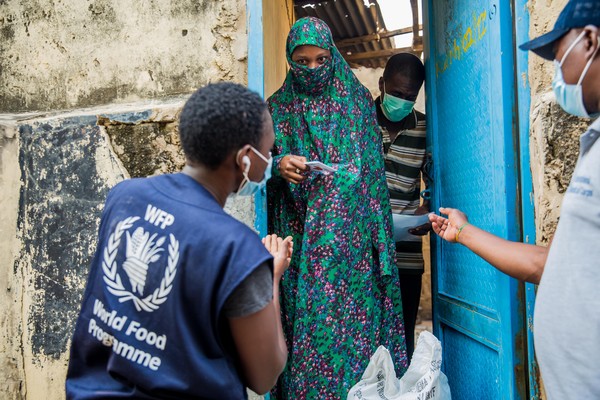The 2020 Nobel Peace Prize was awarded to the World Food Programme (WFP) “for its effort to combat hunger, for its contributions to bettering conditions for peace in conflict affected areas, and for acting as a driving force in efforts to prevent the use of hunger as a weapon of war and conflict”. Founded in 1961, the WFP is the world’s largest humanitarian organization, having provided assistance to approximately 100 million people in 88 countries in 2019. The agency’s main mission is in line with the second Sustainable Development Goal (SDG), which is to achieve zero hunger. It also works across a broad spectrum of other SDGs such as education and employment, which are both interrelated with hunger and health. WFP operations, funded by voluntary donations from national governments, corporations, and private donors, focus on emergency assistance as well as long term rehabilitation and development.

In recent years, there has been a surge in world hunger. As many as 135 million people currently suffer from acute hunger, mostly due to war and armed conflict. But with the ongoing coronavirus pandemic, these numbers are expected to rise. In an address to the UN Security Council, WFP’s Executive Director David Beasley warned that with COVID-19, he expects to see “not only a global health pandemic but also a global humanitarian catastrophe”. The lockdown has negatively impacted the agricultural production and the global supply chain. The UN Department of Economic and Social Affairs policy brief stated that “while the virus has impacted everyone, it is impacting the world’s poorest and most vulnerable people the most.” According to their prediction, the pandemic is expected to push 71 million people back into extreme poverty and cause 132 million more to suffer from undernourishment. Conflict-ridden countries such as Yemen, South Sudan, and Burkina Faso have taken an especially hard hit, leading to a dramatic rise in the number of people living on the brink of starvation.
Rising to the challenge, the WFP is undertaking the biggest humanitarian response in its history. Aside from delivering food aid, the agency aims to empower vulnerable communities by improving social protection systems and increasing access to school-based nutrition services. In Democratic Republic of Congo, WFP provided opportunities for indigeneous children in remote provinces to enter the school system and increasingly purchased food for its school feeding program directly from local smallholders. The WFP is also using its long-standing expertise to monitor markets, supply chains, and prices in order to contain the consequences that the virus would have on food distribution systems. An example of this initiative is the Hunger Map LIVE, an automated near real-time food security monitoring system that tracks and visualizes the severity and scope of hunger in over 90 countries. The platform will help authorities and policymakers make informed and timely decisions, and also serve as a reminder about the severity of global hunger.
WFP’s motto is “saving lives and changing lives”. Hunger and armed conflicts result in a vicious cycle of hunger and poverty. We cannot eradicate hunger without ending armed conflicts, and food insecurity is bound to trigger violence. The WFP led the efforts for the unanimous adoption of UN Security Council’s Resolution 2417, which for the first time explicitly addressed the link between conflict and hunger. It has also pioneered projects in developing countries that combine humanitarian work and peace efforts. The WFP’s support to state-provided services, such as school meals in Kyrgyzstan, helps improve trust between marginalized communities and their governments.
The Nobel Committee praised the WFP for its role in “multilateral cooperation on making food security an instrument of peace.” This year’s Nobel Prize is especially meaningful in that it increased awareness of global hunger and recognized the people who put their lives on the line to eradicate human suffering. Conflicts, climate shocks, and a global pandemic with its devastating effect on the economies and communities is projected to push millions more to the brink of starvation.The recognition of the importance of the WFP’s work emphasizes that the world must stand united for zero hunger and lasting peace.

